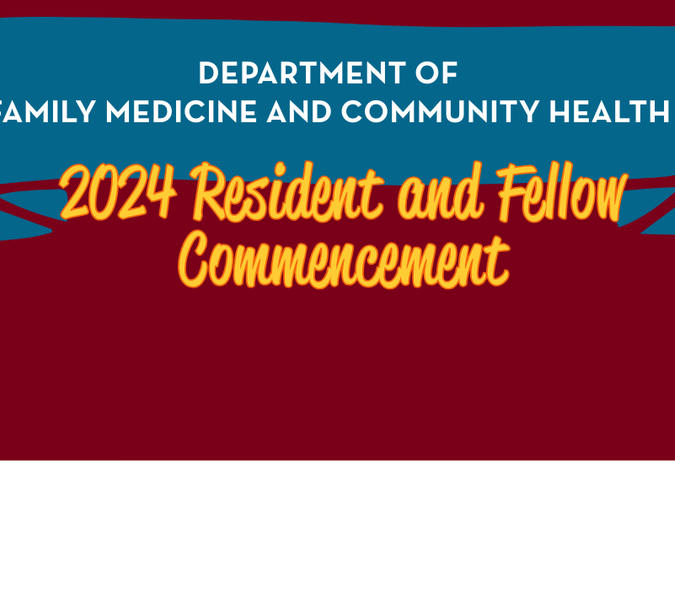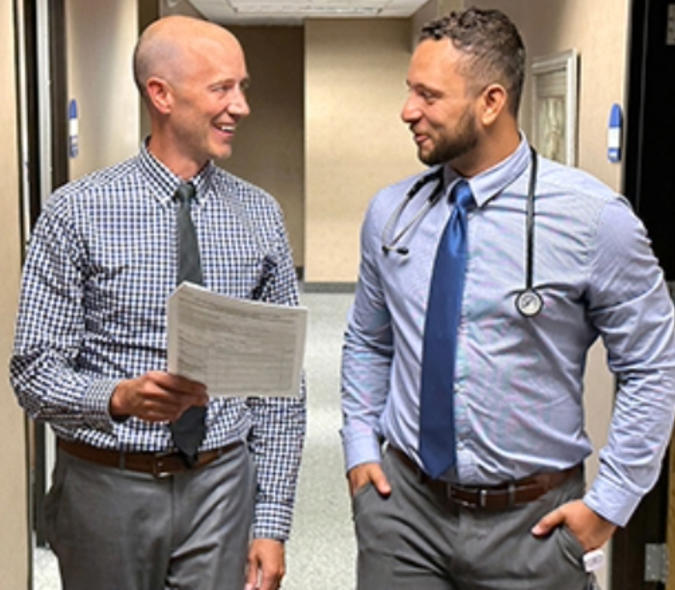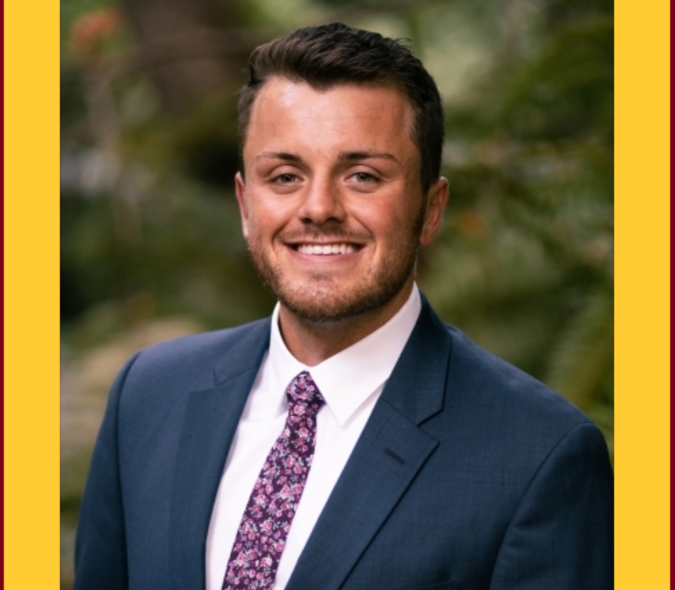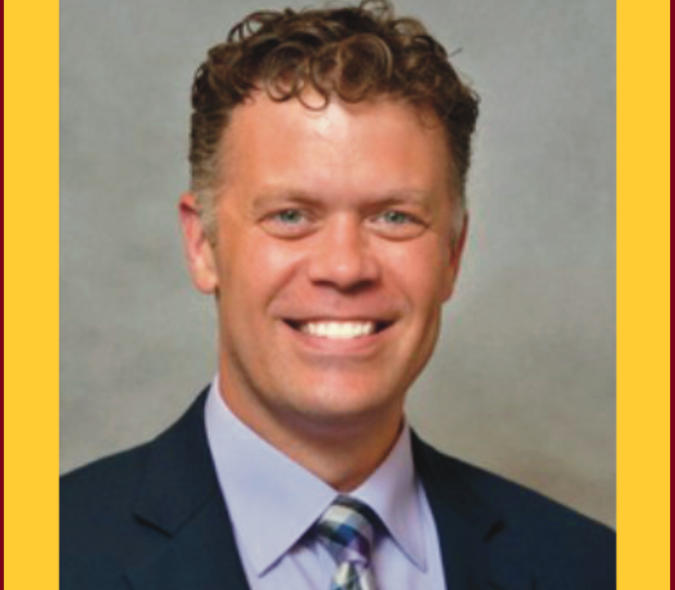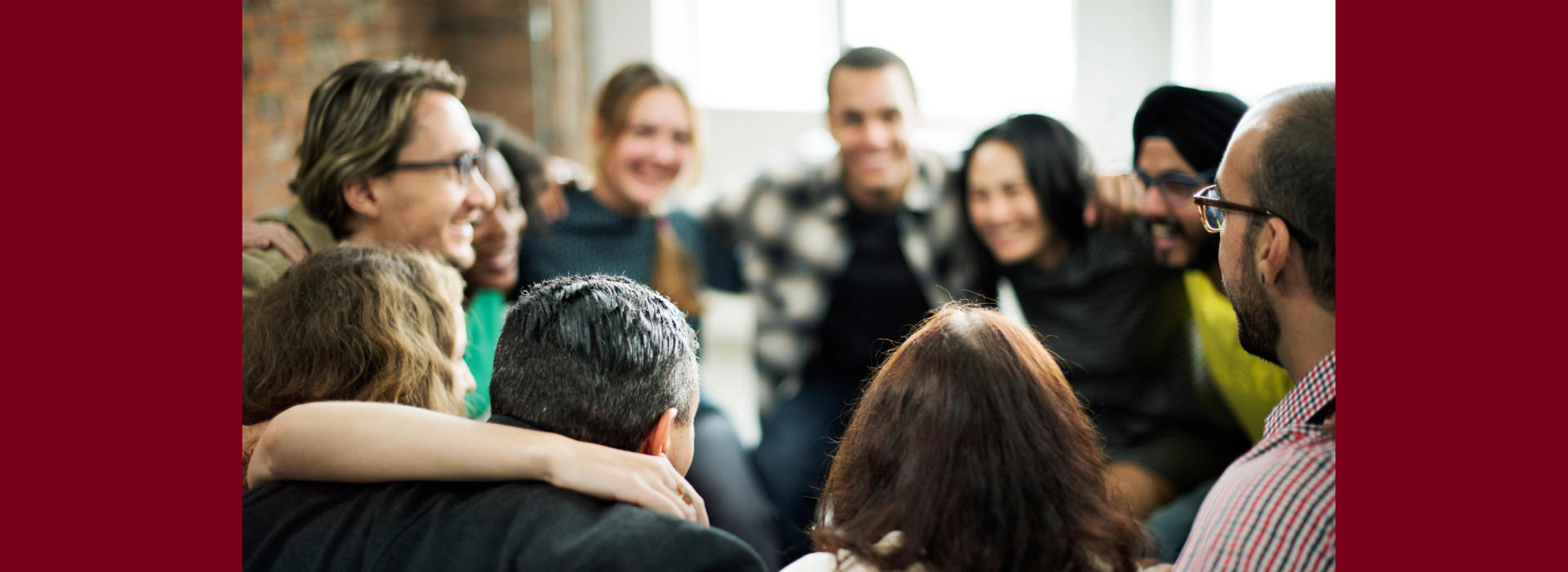
The Power of Community Resources in Family Medicine Residency Training
In family medicine residency, resources gathered from local service organizations are crucial to help residents engage with community members and provide primary care. The wisdom that comes from public assistance workers, teachers, nurses, librarians, and other experts makes for valuable additions to healthcare education.
Yet it can be logistically complex to gather those resources. Scheduling in-person meetings with community members can be challenging, especially when considering residents’ demanding schedules.
While completing her master's in public health administration and policy degree, Methodist Hospital Family Medicine Residency faculty Shannon Neale, MD, MPH, decided to incorporate her residency teaching work: “I thought, ‘how can we really maximize the exposure of the residents to the community while preventing this headache of logistics?’ That's how this idea was really born.”
Community tours lead to audio recordings
Historically, the Methodist faculty had arranged for community tours with residents during their first year. This was meant to instruct the residents in community partner resources that could then be shared with patients.
“The tours were always hard to organize,” Dr. Neale said. “People in the community were often not available when the residents were available. So we would set up five or six site visits in a half day for each resident. It was really tough. A lot of times they'd only end up going to visit a couple of places because of time constraints.”
Over the past several months, Dr. Neale worked with Methodist Program Director Amy Bonifas, MD, lead residents at Methodist, and others to kick off her effort to accumulate audio recordings of community members’ wisdom and use it as part of the residency curriculum.
“You could just listen to an audio recording while you were doing the laundry or washing dishes. And I thought it was a really effective educational technique,” said Dr. Neale.
A collaborative approach
To kick off the project, Dr. Neale enlisted the help of various team members: Methodist residents Madison Duppenthaler, MD, and Madeline Jagerson, MD; Methodist social worker Allison Hayward, MSW; administrative coordinator Kathryn Chamberlain; and an audiovisual tech with the UMN Medical School to do the actual recordings.
The group worked together to come up with a list of places in the St. Louis Park community that residents should know more about. They brainstormed about community resources that met a lot of needs, including domestic violence shelters, a local food shelf, housing assistance; public services like the library, fire department, and the police. After running their list past faculty, they identified the top seven places to conduct audio recordings of the community partners.
From ideation to implementation
Following a survey of faculty and residents who listened to samples of the recordings, the team decided to integrate the content into different parts of the residency curriculum. The faculty and program leadership decided to use the community partners’ information in various ways throughout the first year of residency.
“For example, our social worker will have a half day with the residents in which they will listen to the recording from the police department and one about services the local food shelf provides,” said Dr. Neale. “They're also going to listen to another podcast on community policing. This will be followed by reflection questions and a deliberate conversation with the social worker about food insecurity, community policing, and the trauma around both of those.”
After the discussions, residents will participate in food delivery with a program that the Methodist family medicine residency program has been working with for a few years, Dinner at Your Door. The learners will go out and deliver food to people in need and those who are shut in.
Dr. Neale sums up the ultimate goal: “We're trying to make these community resources a part of the curriculum. So the residents are learning about issues and also learning about our community at the same time.”
Fulfilling a need in the community
The Methodist family medicine residency program had already made an effort in the past to evaluate social determinants of health at the Creekside Clinic at various visits with patients. At one point, the clinic provided prepackaged food boxes to those facing food insecurity. Still, the need among patients was great.
“We had noticed a lot of patient needs or patient questions that we didn't always have good or easy answers to as far as access,” said Dr. Duppenthaler. “It was always really surprising to witness the amount of need or insecurity in food, housing, transportation, and general resources. We had gotten pretty curious about how else we might engage in outreach into our community, especially when it wasn't very easy for a lot of these patients to get into the clinic. We wanted to educate ourselves with different resources.”
Future plans for the new curriculum
Dr. Neale and the residents plan to submit presentation abstracts at public health conferences, integrate the new curriculum into residency training, and share findings with other residency programs. All residency programs in the Department of Family Medicine and Community Health have access to a Community Health Committee, which will serve as an access point to the new curriculum. All these efforts will hopefully ensure long-term impact and sustainability.
Ultimately, the project aims to enhance physicians' understanding of community resources and foster better patient care outcomes.
“Utilizing this work is going to help us care for patients much better,” said Dr. Jagerson. “We will be able to give patients resources to be successful outside of the clinic and empower them to be successful in that month, two months, three months, or even 12 to 24 months where they're not coming to see us but are still experiencing those ongoing struggles with access to different resources, their chronic health conditions, and medical conditions. I see it going really well and hopefully having overall improvement on our patient health scores or just how they're doing in general.”
Sharing community resources benefits all
Trying to expand trainees’ and physicians’ knowledge of community resources can be tough because they are ever-changing, especially due to COVID – some services simply no longer exist.
Dr. Duppenthaler sees the benefits to being more involved with a long-term effort to keep track of those community resources – for the patients but also for the learners:
“Empowering us as residents to do our own digging and education and looking to support our patients will translate into long term success,” she said.
Dr. Jagerson agrees: “There's this belief for those just coming out of medical school that we need to fix everything that comes our way. And it's a good and humbling reminder that something like 80 percent of health happens outside of the clinic. We are not the end-all, be-all; as family physicians, our job is often about connecting people with resources and remembering that there is an abundance of health care happening at the fire station, the local food pantry, and all over. It is so helpful for us to know that – and share it with patients so that they can benefit from it as well.”
